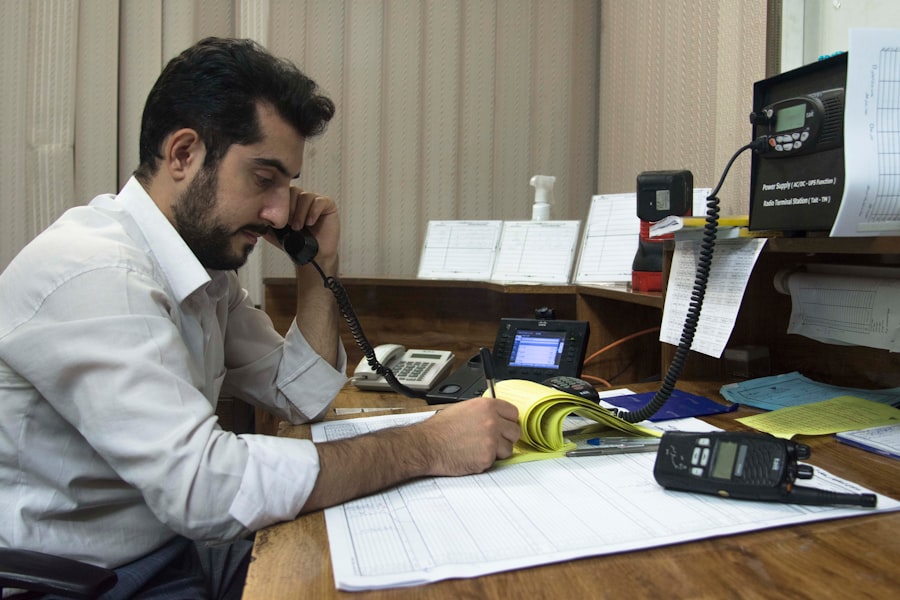The Certified Management Accountant (CMA) designation is a globally recognized professional credential that signifies expertise in financial management and strategic decision-making. Offered by the Institute of Management Accountants (IMA), the CMA certification is designed for professionals who are involved in financial planning, analysis, control, and decision support. Unlike other accounting certifications that may focus primarily on financial reporting and compliance, the CMA emphasizes management accounting, which integrates financial data with business strategy to drive organizational success.
To earn the CMA designation, candidates must meet specific educational and professional requirements. Typically, this includes holding a bachelor’s degree from an accredited institution and having at least two years of professional experience in management accounting or financial management. Additionally, candidates must pass a rigorous two-part examination that tests their knowledge in areas such as financial reporting, planning, performance management, and internal controls.
This comprehensive approach ensures that CMAs possess not only technical accounting skills but also the ability to apply these skills in a business context.
Key Takeaways
- The Certified Management Accountant (CMA) designation is a globally recognized professional certification for management accountants.
- Becoming a CMA can lead to increased job opportunities, higher salary potential, and enhanced credibility in the field of management accounting.
- The CMA exam consists of two parts covering topics such as financial planning, analysis, control, decision support, and professional ethics.
- Certified Management Accountants have career opportunities in various industries, including finance, healthcare, manufacturing, and technology.
- CMAs play a crucial role in financial management by providing strategic financial analysis, budgeting, and forecasting to support decision-making within organizations.
- Continuing education and professional development are essential for CMAs to stay updated with industry trends and maintain their certification.
- Certified Management Accountants can expect competitive salaries and a positive job outlook, with opportunities for advancement into leadership roles.
- To become a Certified Management Accountant, individuals must meet certain education and experience requirements, pass the CMA exam, and fulfill continuing education obligations.
The Benefits of Becoming a Certified Management Accountant
Pursuing the CMA designation offers numerous advantages that can significantly enhance a professional’s career trajectory. One of the most compelling benefits is the potential for increased earning power. According to various industry surveys, CMAs often command higher salaries compared to their non-certified peers.
This salary premium reflects the advanced skills and knowledge that CMAs bring to their organizations, making them valuable assets in strategic decision-making processes. In addition to financial benefits, obtaining the CMA designation can lead to greater job security and career advancement opportunities. As businesses increasingly seek professionals who can provide insights into financial performance and contribute to strategic planning, CMAs are well-positioned to take on leadership roles within their organizations.
The certification also enhances credibility and demonstrates a commitment to professional development, which can be particularly appealing to employers looking for candidates who are dedicated to their field.
The CMA Exam: What to Expect and How to Prepare

The CMA exam is divided into two parts, each focusing on different aspects of management accounting and financial management. Part One covers Financial Planning, Performance, and Analytics, while Part Two focuses on Strategic Financial Management. Each part consists of multiple-choice questions and essay questions that require candidates to apply their knowledge in practical scenarios.
The exam is known for its rigor, necessitating thorough preparation and a solid understanding of both theoretical concepts and real-world applications. To effectively prepare for the CMA exam, candidates should develop a structured study plan that allocates sufficient time for each topic covered in the syllabus. Many candidates find it beneficial to utilize review courses or study materials specifically designed for the CMA exam.
These resources often include practice questions, mock exams, and interactive learning tools that can help reinforce key concepts. Additionally, joining study groups or engaging with online forums can provide valuable support and motivation as candidates navigate the challenging preparation process.
Career Opportunities for Certified Management Accountants
| Metrics | Data |
|---|---|
| Job Growth | 6% (2018-2028) |
| Median Salary | 87,000 per year |
| Top Industries | Finance, Healthcare, Manufacturing |
| Job Titles | Financial Analyst, Cost Accountant, Controller |
| Professional Development | Continuing education and certification |
The career landscape for Certified Management Accountants is diverse and dynamic, offering a wide range of opportunities across various industries. CMAs can find roles in corporate finance, budgeting, forecasting, and performance management within organizations of all sizes, from multinational corporations to small businesses. Their expertise in financial analysis and strategic planning makes them integral to decision-making processes that drive organizational growth.
Moreover, CMAs are not limited to traditional accounting roles; they can also transition into positions such as financial analyst, controller, or even chief financial officer (CFO). The skills acquired through the CMA program equip professionals to take on leadership roles that require a deep understanding of both finance and business strategy. As organizations continue to recognize the importance of data-driven decision-making, the demand for CMAs is expected to grow, further expanding career opportunities in this field.
The Role of a Certified Management Accountant in Financial Management
Certified Management Accountants play a crucial role in the financial management of organizations by providing insights that inform strategic decisions. They are responsible for analyzing financial data, preparing budgets, and conducting variance analysis to assess performance against targets. This analytical work enables businesses to identify trends, forecast future performance, and make informed decisions regarding resource allocation.
In addition to traditional financial management tasks, CMAs often engage in risk management and internal controls. They assess potential risks that could impact an organization’s financial health and develop strategies to mitigate these risks. By integrating financial analysis with strategic planning, CMAs help organizations navigate complex business environments and achieve their long-term objectives.
Their ability to communicate financial insights effectively also positions them as key advisors to senior management and stakeholders.
Continuing Education and Professional Development for CMAs
The field of management accounting is constantly evolving due to changes in technology, regulations, and business practices. As such, continuing education is essential for Certified Management Accountants to maintain their competitive edge and stay current with industry trends. The IMA requires CMAs to complete a minimum of 30 hours of continuing professional education (CPE) every year, which can include attending workshops, webinars, or pursuing additional certifications.
Professional development opportunities extend beyond formal education; networking with other professionals in the field can provide valuable insights and foster collaboration. Many CMAs participate in local IMA chapters or industry associations where they can share knowledge and experiences with peers. Engaging in mentorship programs or seeking out leadership training can also enhance a CMA’s skill set and prepare them for advanced roles within their organizations.
Salary and Job Outlook for Certified Management Accountants
The salary prospects for Certified Management Accountants are generally favorable, reflecting the high demand for their specialized skills in financial management. According to data from various salary surveys, CMAs often earn significantly more than their non-certified counterparts. Factors influencing salary levels include geographic location, years of experience, industry sector, and specific job responsibilities.
For instance, CMAs working in major metropolitan areas or industries such as finance or technology may command higher salaries due to increased demand for their expertise. The job outlook for CMAs remains strong as organizations continue to prioritize strategic financial management in an increasingly complex business environment. The Bureau of Labor Statistics projects steady growth in employment opportunities for accountants and auditors over the next decade.
As businesses seek professionals who can provide insights into financial performance and contribute to strategic decision-making processes, the demand for CMAs is expected to rise correspondingly.
How to Get Started on the Path to Becoming a Certified Management Accountant
Embarking on the journey to become a Certified Management Accountant begins with understanding the prerequisites for certification. Aspiring CMAs should first ensure they meet the educational requirements by obtaining a bachelor’s degree in accounting or a related field from an accredited institution. Following this, gaining relevant work experience in management accounting or financial management is crucial; this experience not only fulfills certification requirements but also provides practical insights into the profession.
Once the educational and experience criteria are met, candidates can begin preparing for the CMA exam by enrolling in review courses or utilizing study materials tailored specifically for the exam format. Developing a study schedule that allows ample time for each part of the exam is essential for success. Additionally, candidates should consider joining professional organizations such as the IMA to access resources, networking opportunities, and support throughout their certification journey.
By taking these steps, aspiring CMAs can position themselves for a rewarding career in management accounting that offers both personal fulfillment and professional growth.


